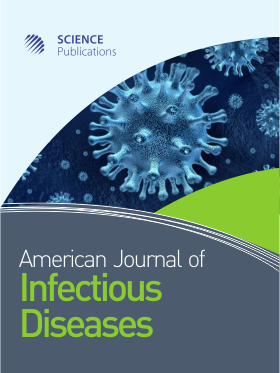Impact of Multiplex PCR Panel on Reducing Broad-Spectrum Antibiotic Use in Ventilator-Associated Pneumonia
- 1 Department of Infectious Diseases, Hospital Italiano de Buenos Aires, Buenos Aires, Argentina
- 2 Infection Control Committee, Hospital Italiano de Buenos Aires, Buenos Aires, Argentina
- 3 Department of Intensive Care, Hospital Italiano de Buenos Aires, Buenos Aires, Argentina
- 4 Department of Microbiology, Hospital Italiano de Buenos Aires, Buenos Aires, Argentina
- 5 Department of Pharmacy, Hospital Italiano de Buenos Aires, Buenos Aires, Argentina
Abstract
The extended use of broad-spectrum antimicrobials contribute to the growing threat of antimicrobial resistance. This study evaluated the impact of a multimodal strategy aiming at reducing the duration of broad-spectrum antimicrobial therapy in Ventilator-Associated Pneumonia (VAP). Conducted in a single Intensive Care Unit (ICU), this quasi-experimental, retrospective study compares a pre-intervention period (08/01/2018-07/01/2019) with an intervention period (08/01/2022-07/01/2023). Adult patients receiving antimicrobials for suspected VAP with positive respiratory cultures were included, 35 and 53 VAP events in the pre-intervention and intervention period, respectively. The intervention combined a diagnostic and treatment algorithm with a multiplex PCR Pneumonia Panel (PnP), education for the ICU staff, and enhanced communication with a multidisciplinary consultation group. The median time from antibiotic prescription to modification decreased from 76 h (IQR 63-100) to 21 h (IQR 8-31), a reduction of 55 h (95% CI -67, -42; p<0.001). The time difference for each of the most used broad spectrum antimicrobials, vancomycin, carbapenems and colistin, was not statistically significant (-28 h [95% CI-64, 8; p = 0.129], -3.4 h [95% CI -51 , 44; p = 0.888] and -25 h [95% CI-56, 5; p = 0.104] respectively).The PnP demonstrated high specificity (100% [95%CI 92.3-100]) and negative predictive value (98.2%) for methicillin-resistant Staphylococcus aureus with a sensitivity of 83.3% (95% CI35.9-99.6), and moderate performance for extended-spectrum beta-lactamase detection with a sensitivity of 62.5% (95% CI 24.5-91.5), specificity of 84.1% (95% CI 69.9 - 93.4) and negative predictive value of 88.2%. This study demonstrates that a multimodal strategy with a rapid diagnostic method, education and improved communication can significantly reduce the duration of empirical broad-spectrum antimicrobials in critical patients treated for VAP.
DOI: https://doi.org/10.3844/ajidsp.2025.15.25

- 57 Views
- 22 Downloads
- 0 Citations
Download
Keywords
- Antimicrobial Stewardship
- Pneumonia
- Pneumonia Panel
- Rapid Diagnostic Tests
- Multiplex
